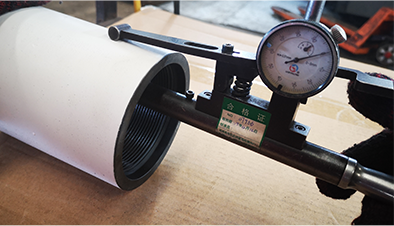- Afrikaans
- Albanian
- Amharic
- Arabic
- Armenian
- Azerbaijani
- Basque
- Belarusian
- Bengali
- Bosnian
- Bulgarian
- Catalan
- Cebuano
- Corsican
- Croatian
- Czech
- Danish
- Dutch
- English
- Esperanto
- Estonian
- Finnish
- French
- Frisian
- Galician
- Georgian
- German
- Greek
- Gujarati
- Haitian Creole
- hausa
- hawaiian
- Hebrew
- Hindi
- Miao
- Hungarian
- Icelandic
- igbo
- Indonesian
- irish
- Italian
- Japanese
- Javanese
- Kannada
- kazakh
- Khmer
- Rwandese
- Korean
- Kurdish
- Kyrgyz
- Lao
- Latin
- Latvian
- Lithuanian
- Luxembourgish
- Macedonian
- Malgashi
- Malay
- Malayalam
- Maltese
- Maori
- Marathi
- Mongolian
- Myanmar
- Nepali
- Norwegian
- Norwegian
- Occitan
- Pashto
- Persian
- Polish
- Portuguese
- Punjabi
- Romanian
- Russian
- Samoan
- Scottish Gaelic
- Serbian
- Sesotho
- Shona
- Sindhi
- Sinhala
- Slovak
- Slovenian
- Somali
- Spanish
- Sundanese
- Swahili
- Swedish
- Tagalog
- Tajik
- Tamil
- Tatar
- Telugu
- Thai
- Turkish
- Turkmen
- Ukrainian
- Urdu
- Uighur
- Uzbek
- Vietnamese
- Welsh
- Bantu
- Yiddish
- Yoruba
- Zulu
API 5CT Casing Coupling Specifications and Applications Guide
Understanding API 5CT Casing Couplings
In the oil and gas industry, the integrity of well construction is paramount. To ensure that wells can withstand the significant pressures and environmental conditions they encounter, various components must meet rigorous standards. One of these critical components is the casing, and more specifically, the casing couplings that connect the individual lengths of casing pipe together. The American Petroleum Institute (API) has established specifications for these components, notably in the API 5CT standards.
What is API 5CT?
API 5CT is a specification set by the American Petroleum Institute that governs the technical requirements for casing and tubing used in the oil and gas industry. These standards focus on the mechanical properties, manufacturing processes, and testing requirements for casing materials to ensure that they can perform effectively under the challenging conditions of oil and gas extraction. The specifications cover various grades of casing, providing guidelines for their use in both onshore and offshore applications.
Casing and Casing Couplings
Casing is a series of large-diameter pipes that are installed in the wellbore after drilling. Its primary purpose is to stabilize the wellbore, prevent the walls from collapsing, and isolate the different underground formations from one another. Casing couplings, on the other hand, are short lengths of pipe that connect two casing pipes together. These couplings must be robust and reliable to maintain the integrity of the casing string.
Casing couplings are typically produced with threaded ends that allow them to be screwed onto the ends of the casing pipes. The threading must conform to strict API standards to ensure a proper fit and seal. This is crucial, as any failure in the coupling can lead to leaks, collapse of the wellbore, or other catastrophic failures.
Material and Design Standards
api 5ct casing coupling

According to API 5CT, the materials used for casing and coupling manufacturing are primarily carbon steel grades, which are designed to withstand varying levels of stress, temperature, and corrosion. The most commonly used grades include J55, K55, N80, and P110, each with specific properties suited to different well conditions.
The design of API 5CT casing couplings must prioritize mechanical strength and durability. Couplings can be produced in different forms, such as external upset (EU) and internal upset (IU) designs. The external upset design allows for a thicker wall at the connection point, providing additional strength to handle higher pressures, while the internal upset design offers a smoother interior surface for fluid flow.
Importance of Quality Control
One of the critical aspects of producing API 5CT casing couplings is the quality control measures in place throughout the manufacturing process. Each coupling must undergo rigorous testing to ensure it meets the specified mechanical properties and is free from defects. This typically includes non-destructive testing methods, such as ultrasonic inspection, to detect any flaws in the material.
Additionally, the industry often requires third-party inspection and certification to verify that the couplings meet API standards before they are approved for use in well construction. This process ensures that all components used in well integrity are reliable and durable enough to withstand the harsh conditions they will face in the field.
Conclusion
API 5CT casing couplings play a vital role in the oil and gas industry's well construction process. By providing a secure and reliable connection between casing pipes, they help to maintain the structural integrity of the wellbore and prevent catastrophic failures. With strict adherence to API standards in material selection, design, and quality control, manufacturers can ensure that their products meet the high demands of the industry.
As oil and gas extraction techniques continue to evolve, the need for dependable and high-quality casing couplings remains essential. The standards set forth by API, particularly in API 5CT, guarantee that operators can trust the components used in their wells, ultimately ensuring safe and efficient extraction processes. Thus, understanding API 5CT casing couplings is crucial for anyone involved in the oil and gas sector, from engineers to procurement specialists, as these components are foundational to modern drilling operations.
-
Tubing Pup Joints: Essential Components for Oil and Gas OperationsNewsJul.10,2025
-
Pup Joints: Essential Components for Reliable Drilling OperationsNewsJul.10,2025
-
Pipe Couplings: Connecting Your World EfficientlyNewsJul.10,2025
-
Mastering Oilfield Operations with Quality Tubing and CasingNewsJul.10,2025
-
High-Quality Casing Couplings for Every NeedNewsJul.10,2025
-
Boost Your Drilling Efficiency with Premium Crossover Tools & Seating NipplesNewsJul.10,2025







